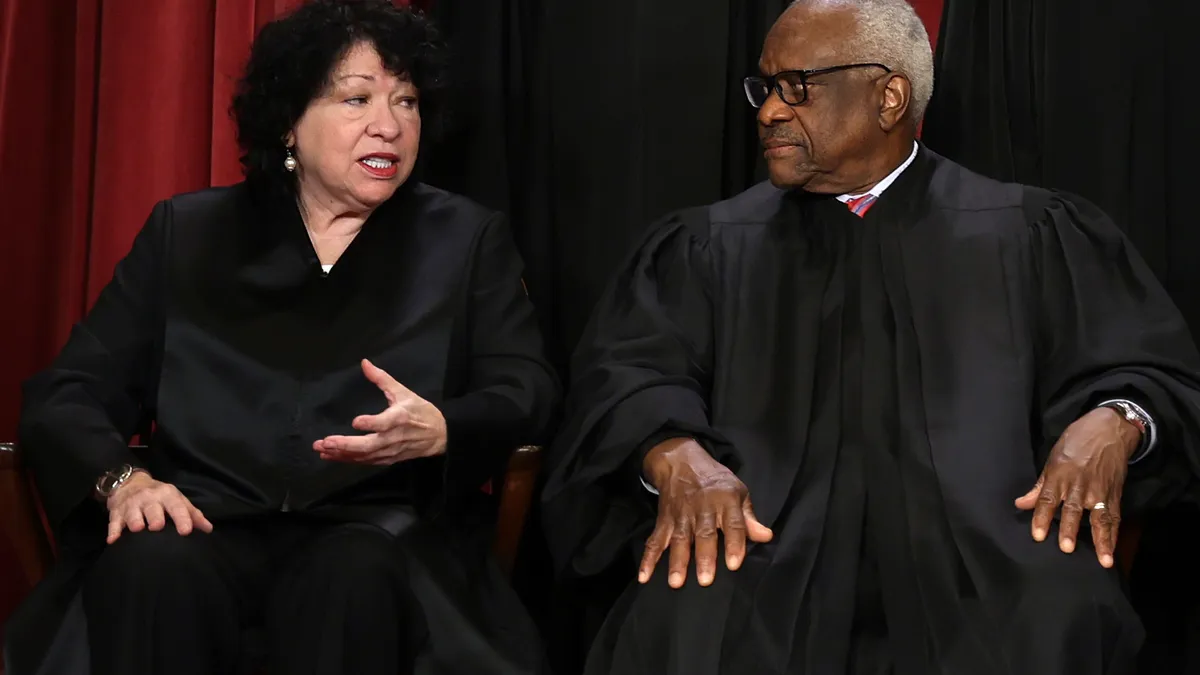Heading into the new year, there are several changes to California’s employment laws employers should note, Cozen O’Connor attorneys said in a recent webinar.
Among other things, the Golden State has made changes to requirements for wages, sick leave and captive audience meetings, they said.
Local enforcement of discrimination claims (SB 1340)
Employers in California can expect to see local governments enforcing certain state nondiscrimination laws, Elena Hillman, member of the firm, said. The law allowing them to do so was passed because the state’s civil rights department cannot keep up with the volume of complaints being filed, she explained.
“It’s a big deal in that we might start seeing a lot more enforcement actions from these local agencies,” Hillman said.
Intersectional nondiscrimination protections (SB 1137)
The concept of intersectional discrimination has been recognized elsewhere — such as the U.S. Equal Employment Opportunity Commission — but now California has outlawed it at the state level. This means, Hillman said, that even if an employee is unable to show age or sex discrimination individually, they could successfully allege bias based on the fact that they’re an older woman, for example.
Employers should revise their policies to anticipate that discrimination can be on the basis of the combination of factors, Hillman suggested; and when faced with a claim that requires investigation, HR should take care to look at the big picture, because this expands the ability to claim disparate treatment.
Driver’s license requirements (SB 1100)
California has put greater impositions on employers who try to indicate in their job posting that a driver’s license is necessary for the job, Hillman said.
To eliminate a potential employment barrier for some workers, the law requires that if an employer indicates that a license is required, it must: (1) reasonably expect driving to be one of the job functions for the position; and (2) reasonably believe that satisfying the job function via an alternate form of transportation — such as bicycling, walking or using a ride-share service — would not be comparable in travel time or cost.
Expanded protections for victims of violence (AB 2499)
AB 2499 is focused on expanded protections for victims of violence but also deals with jury leave, witness leave and court subpoena leave, Hillman said.
For example, it prohibits discrimination or retaliation against an employee who takes time off to obtain a temporary restraining order or secure a safe place to live.
Hillman recommended covered employers brush up on the law’s notice requirements and draft a policy outlining the various accommodations and time to which employees are entitled.
Hiring requirements for freelancers (SB 988)
For freelancers receiving at least $250 from an employer, the law requires a written contract, according to Nicole Herter Perkin, member of the firm.
The law spells out what must be included in that contract and creates recordkeeping requirements, she said.
Captive audience meeting restrictions (SB 399)
Following the lead of several other states, California created protections for employees who decline to attend employer-sponsored meetings about political or religious matters, including information sessions regarding labor organization.
“You want to make sure that your policies are updated and that you’re training your supervisors and your managers to know that they cannot require employees to sit and listen to these sorts of meetings anymore,” Herter Perkin said. And, if an employer offers a meeting on a political or religious topic, it’s important to document that anyone who attended did so of their own volition, she added.
She also added that challenges to this requirement are “very possible.”
Changes to paid family leave (AB 2123)
California previously allowed employers to require that employees use up to 2 weeks of any accrued but unused vacation before receiving paid family leave benefits from the state. This law eliminates that option.
Practically, Herter Perkin said, “you could have employees coming back from a paid family leave where they were receiving wage replacements through the [Employment Development Department], and then come back to significant vacation still on the books, whereas before, employers were kind of able to tap into that vacation a bit.”
Voluntary social compliance audits (AB 3234)
This law doesn’t mandate social compliance audits but requires employers who voluntarily subject their business to one to post detailed findings to the company’s website.
The law defines such an audit as inspections of any production house, factory, farm or packaging facility of a business to verify that it complies with social and ethical responsibilities as well as health and safety regulations regarding child labor, according to the presenters.
“The child labor component is really kind of the driving force behind this law,” Herter Perkin said; “there’s been a significant uptick in claims and investigations regarding child labor.”
Retaliation Poster (AB 2299)
The law requires employers to post a list of employees’ rights and responsibilities under California whistleblower laws.
The state’s Division of Labor Standards Enforcement has made available a poster that it said should meet the law’s requirements.
Wage changes
California’s minimum hourly wage will increase from $16 to $16.50 in the new year.
And if approved, Proposition 32 would raise the minimum wage to $17 for the remainder of 2024 for employers with 26 or more employees, increasing it to $18 per hour in 2025. At press time, the result had not yet been called.
The salary threshold for overtime exemption also will increase to $68,640 on Jan. 1, 2025.
Hillman cautioned employers, however, that certain localities and industries have their own wage requirements, too.




















